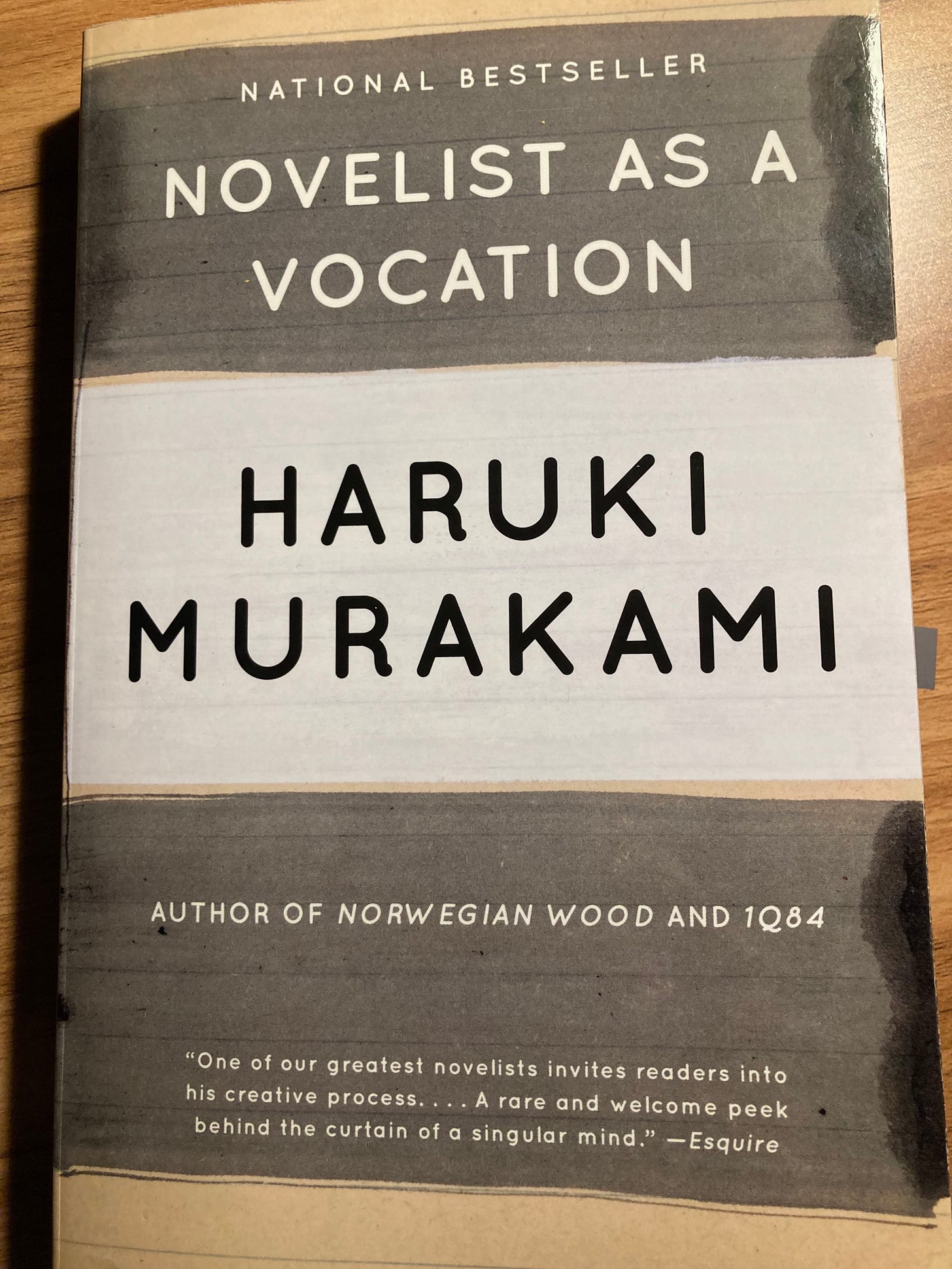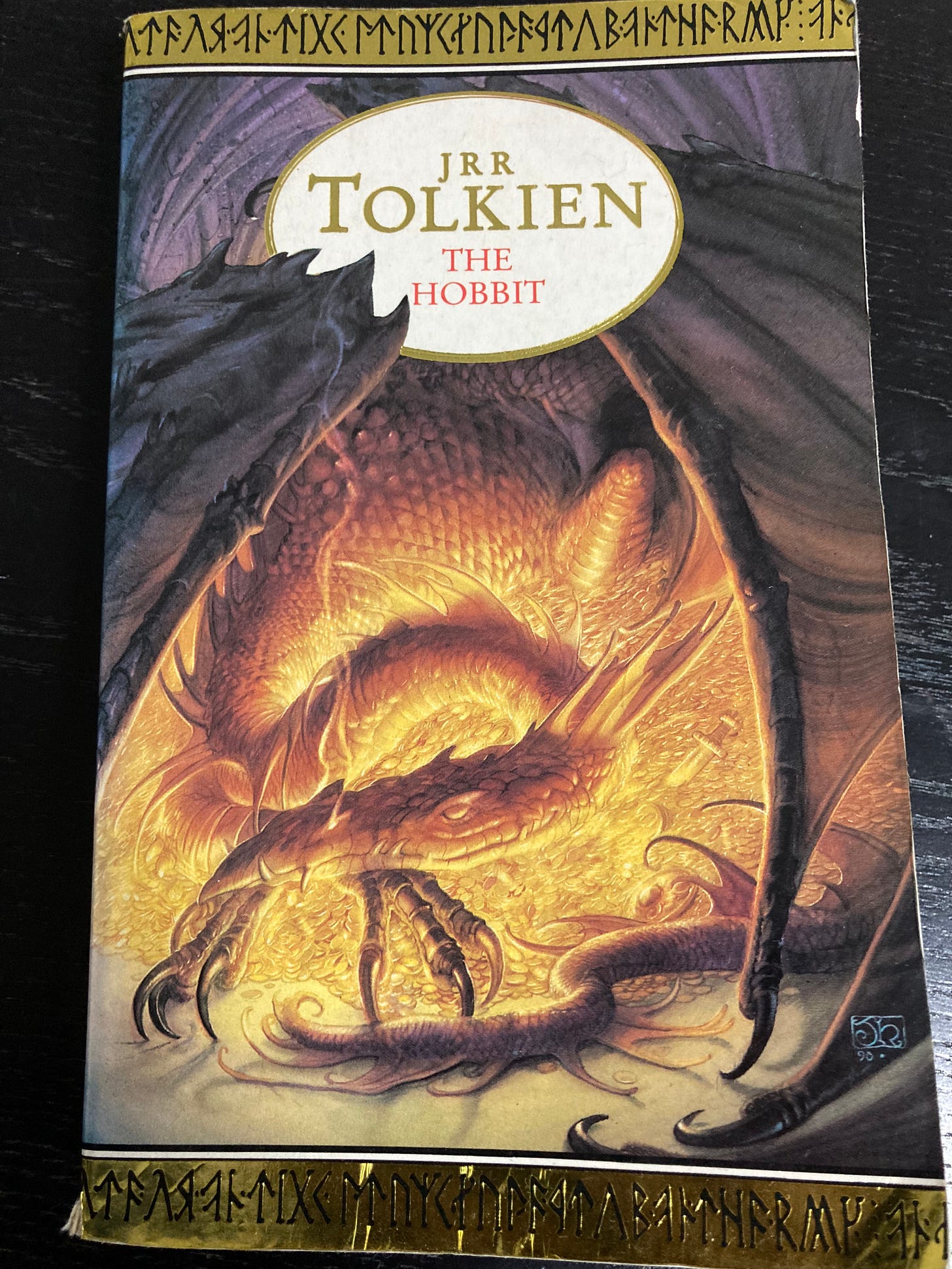Photo by Ed Robertson on Unsplash
Apologies, dear reader, for the crickets around here. It seems that our move disrupted my writing routine enough that I required a brief posting hiatus.
But I’m back and starting something new.
First, stay tuned for the next post of my series “Saying Goodbye to Heidelberg.” A final article will be posted in two weeks.
Additionally, I’ve decided that at the end of every month I’ll offer a short post on books I’ve finished. I don’t necessarily intend this to be considered reading recommendations, rather a list of books and thoughts that might stir some inspiration.
This idea was born from two places. First, my wonderfully creative and book-happy friend shared with me that for the first time she made a reading list in 2023 and felt that it enabled her to read more.
I, on the other hand, twice studied as a literature major, graduated with the allergy called “aversion to required reading lists,” and have read on a whim ever since.
Yet, the proof was in the pudding. I spent 2023 chatting with this friend on Marco Polo, and saw how many books she had been reading, as she shared her thoughts and recommendations month after month. I admire her reading habits, and decided that adhering to a self-imposed reading list is worth a try.
Second, in late December I was walking through the airport when I saw this book:
Having just come across a recommendation for it, I promptly decided that I needed *another* book for my flight. So I picked it up, and finished it before I got home.
This particular section got me to thinking:
“Even so, I’ve been able to soldier on without getting disheartened or depressed…because readers have stayed with my works. Again, perhaps I’m not the one to say this, but these are high-quality readers. They don’t just say, finishing the book, “that was interesting” and toss it aside and forget about it; the majority of them ask themselves why they found it interesting, and go on to consider it all over again…. Some will lend the book to close friends to get them to read it, and then discuss their opinions and impressions of the book together. Through all sorts of ways, then, they get a fuller understanding of the book and can corroborate their response to it.”1
I paused, and evaluated my own reading life. Would I be considered “high-quality” reader? Under Murakami’s requisites, probably not.
I want to grow by taking time to think or write about a book once I finish it. What I read has a direct influence on what and how I write. I want to be more intentional about this.
My hope is that this monthly book post might not only benefit me, but also inspire you, dear reader. Perhaps you’ll find an interesting book to pick up, or a worthy thought to consider.
Let’s give it a try, shall we?
Novelist as a Vocation by Haruki Murakami
All in all, Novelist as a Vocation was a bit self indulgent. (The author suggested this himself.)2 Firstly, it reads as a memoir—recording how he got into the writing business. Secondly, it records the things he’s learned about writing throughout his career. Murakami is first to admit that what works for him may not work for most, but he offers up his experience in the case that it might help someone.
I have been working at a novel for a couple of years now, and I was particularly struck by this insight:
“Well, then, what do you need to do to acquire that kind of stamina? I have but one answer, and a very simple one: you have to become physically fit. You need to become robust and physically strong. And make your body your ally.”3
Murakami achieves this by running. He runs for an hour every day, and has participated in marathons and triathlons. He’s done this for 30 years. It does not seem that he runs because he loves it, but it’s a habit of discipline that he’s cultivated over the years. He says this:
“How have I been able to do it? It’s because I feel like the act of running represents, concretely and succinctly, some of the things I have to do in this life. I have that sort of general, yet very strong, sense. So even on days when I think I’m not feeling so great and don’t feel like running, I tell myself, ‘No matter what, this is something I have to do in my life,’ and I go out and run without really ascribing a logical reason for it.”4
He doesn’t stop here, but also ascribes some scientific research on how physical activity has an impact on our brains, specifically neurons.
This particular advice struck me because you don’t hear writing teachers talk about running or physical activity very much. (Might artists tend to be on the less-physically-inclined scale?)
As for me, the two great loves of my life have always been sport and books. I felt like this advice coincided perfectly. In fact, I felt like I had been waiting for someone to confirm my suspicion about the way these two activities can complement each other. I intend to meditate further on Murakami’s thoughts on this topic.
The Hobbit by J.R.R. Tolkien
The only thing I have to say about The Hobbit, is that it was such a delight to read during the Fall months. Reading about a hobbit hole while the days are cooling down, leaves are falling off the tree, and the dinner menu consists of hearty soups and fresh bread—yes please!
Of course, this was a rereading, and this round I was quite struck by the recurrent themes between the comfort of home and the hardships of a journey. More to come on these thoughts—they are the themes of my life.
For anyone who loves The Hobbit, but has not reread it in awhile, I would heartily advise picking it up again.
Spare by Prince Harry
I didn’t intend to read this book. It was never on my radar as I usually don’t gravitate towards celebrity memoir.
I’ve never really been an Anglophile. However, my husband and I have been re-watching The Crown before we embark on the last season. Since our first viewing I have visited England twice. I’ve gained a number of British friends. I’ve learned a bit more about British culture, and this second viewing of The Crown has raised some questions for me. How can a royal family still exist with this height of favor (?) in this day and age? I decided that I wanted to know what Harry had to say about it.
The memoir was mostly a condemnation of the paparazzi and the public’s desire to consume celebrity content. (Definitely problematic, and not at all surprising that this would be his main point, given his history.)
But Prince Harry is not what I wanted to comment on.
I wanted to share a quote that I was not expecting. Most of the book was not particularly literary or insightful, but one section stopped me.
He described watching a video on Instagram when he first encountered the beauty of Meghan Markle. He described the way it stopped him, the way he watched the video over and over. Then he reflected on reasoning behind beauty.
“Why should beauty feel like a punch in the throat? Does it have something to do with our innate human longing for order? Isn’t that what scientists say? And artists? That beauty is symmetry and therefore represents a relief from the chaos? Certainly my life till that point had been chaotic. I can’t deny hungering for order. Can’t deny seeking a bit of beauty. ”5
I felt like I needed to write this down because of the truth in this statement.
I sympathized with Harry’s story. It certainly had seemed chaotic. But, I also know what it feels like to desire order, to desire beauty, in the midst of chaos. Chaos and order and how it relates to art is something I have been meditating on lately. (And it certainly surprised me to find thoughts about this in Prince Harry’s book.)
Only earlier that month had I written in my notebook: “Every day I wake up and feel that the day is made up of small battles to try to order the chaos around me.”
And it is, right? Chaos of dishes, laundry, but also relationships and meetings. Work is ordering the chaos. Art is, making is, bringing order to chaos. Writing, for me, is ordering the chaotic thoughts I have in my mind. Editing is definitely ordering the chaotic mess on the page.
Art helps to make sense of the chaotic world we live in. Art is the ordering. We long for a bit of this beauty. If you have any book recommendations on this topic I’d be happy to hear it.
Habits of the Household by Justin Whitmel Earley
Along the theme of “chaotic life” is the book Habits of the Household. I first heard this book on audio. It was significant enough of an encouragement to me that I decided to purchase a paper copy.
This book “reimagines household habits as gospel liturgies” primarily as it relates to parenting. The central theme of Habits of the Household is “that we become our habits, and our kids become us.”6
Typically, I am wary about taking parenting advice from anyone who has children the same age or younger than mine, but I made an exception with this book because I recognize that what Earley is suggesting is not new. He points to the ancient monastic term called a “rule of life” and draws our attention to the history of viewing habits as an act of spiritual formation.
Earley has written another book called The Common Rule: Habits for Purpose in an Age of Distraction which takes on the notion of how “our habits form us.”
These books suggest some very helpful habits that do not take a lot of work to incorporate, but the gains are significant.
Did something strike your fancy? Do you plan to read one of these books? Let me know in the comments!
p. 184-185
Foreword, p. xi
p. 115
p. 119
This quote can be found at the very beginning of part three, called “Captain of my Soul,” in chapter one. I listened to the audiobook, so I don’t have page numbers.
p. 21









Jacyln, I had to swing over here and read what you had to say about Murakami's book and I'm so glad I did! I love your idea of reflecting on the books you've read. I, too, am guilty of writing a book's title under the "Books I Read" list in the back of my journal without giving the necessary thought to digest what I've just consumed. I look forward to reading your monthly compilations!
Jaclyn, I loved reading your thoughts here. I echo the sentiment about the connection to exercise and running. I typically do a brief workout before my early morning writing sessions, and rarely hit a mental block when I exercise first. Gets that blood pumping to the brain I guess.